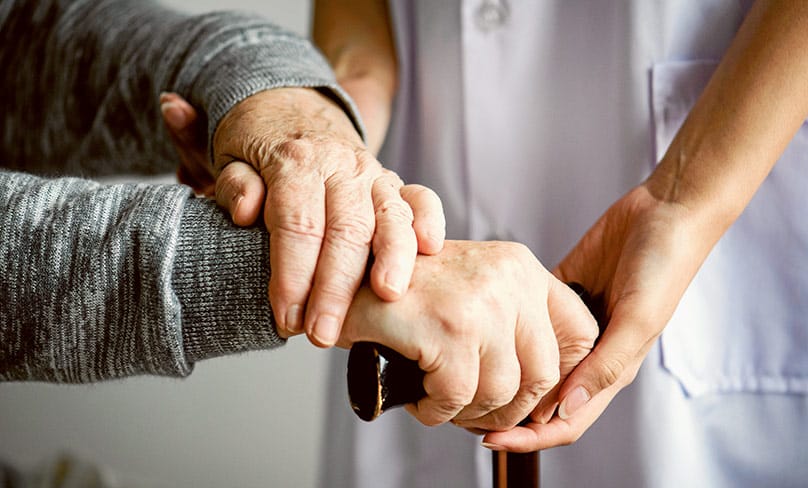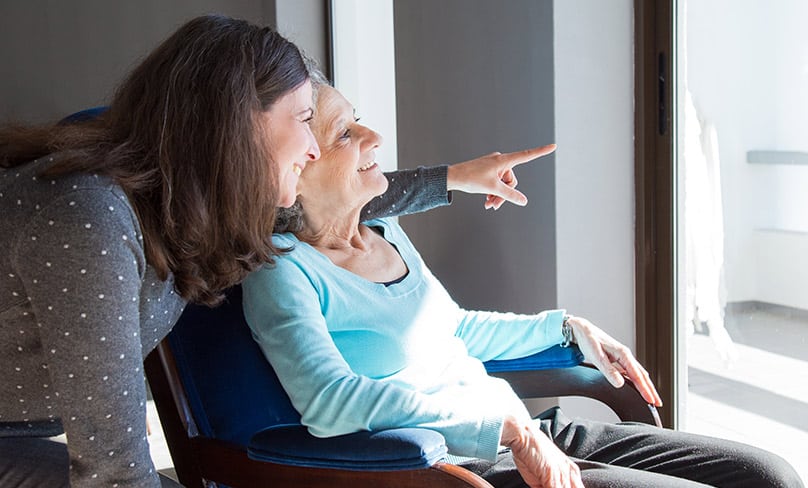
Although recommendations are still to come, the Royal Commission into Aged Care’s interim report, simply titled Neglect, has a clear message.
Australian society must do far better in caring for our elderly.
The stories the Royal Commission have heard are often distressing to hear. But the sector, the government, and the community must listen.
Catholic Health Australia, as the largest not-for-profit provider of aged care, has a special role and responsibility in this public discussion and it’s one we take incredibly seriously.
But hearing the commissioners’ frank assessment of ageism, their highlighting of language that describes our elderly as a burden on our health system or a drain on our tax dollars, really resonated with me on a personal level.
Each of us can find time to reach out to older people to show they are valuable members of our society.
The simple act of sharing a cup of tea and a chat can be part of our own service to the community. I know it’s something I will work on. For CHA, obviously our response to the Royal Commission will be more complex.
A fifth of home care and support for elderly Australians is delivered by Catholic providers.
We are also responsible for 12 percent of aged care facilities.
Our position as the largest not-for-profit provider of both public and private aged care gives our advocacy a unique perspective. As a sector leader the actions we take will have industry-wide implications.
Our care for people who are sick, frail, aged or living with disabilities is founded on love and respect for the inherent dignity of every human being.
These values guide us as we advocate for reform, and will hopefully become a permanent force in the system.
While not wanting to pre-empt the Royal Commission’s work, Catholic Health Australia believes the financial pressures providers face must be urgently addressed by government.

The viability of the sector depends on it.
In 2018 the proportion of aged care homes operating at a loss increased to 45 per cent from 33 per cent the previous year. In rural and remote areas 68 per cent of aged care homes are operating at a loss.
This is why an increase to the viability supplement for rural and remote services is needed.
Under the existing Aged Care Funding Instrument, funding for residential aged care is volatile and unsustainable.
Funding per resident per day can have year-to-year increases of between 2.1 per cent and 8.1 per cent, which makes future planning incredibly difficult. This sort of volatility and uncertainty isn’t good for government, or for providers.
Wage growth has grown twice as fast as ACFI prices over the last ten years. The consequences of this have led to a fractured sector, with a stretched workforce and too many providers operating with unsustainable losses.
Catholic Health Australia has long called for a new funding model for residential aged care, which reflects the range of care required and the life cycle of costs, such as adjusting new residents.
It is almost certain the commissioners will recommend reforms to both the method and amount of funding.
However, the government could act now by injecting funding into home care packages, as called for by the interim report, to help improve conditions for the elderly and their families. This could be addressed in the Mid-Year Economic and Fiscal Outlook and would add much needed stability to stressed providers.
In mid 2019, there were some 76,092 people waiting for proper care in their homes. A boost to higher level home care packages would address this.
The Royal Commission’s interim report also made an urgent call to address the over-reliance on chemical restraint and to stop the flow of younger people with disability going into aged care.
Comprehensive action on this is not offered by the Royal Commission at this stage, but Commissioners have emphasised that a closer dialogue with the sector is vital to developing their recommendations.
There will be no shortage of voices with suggestions on how to fix the system. Catholic Health Australia will work with all groups to try and deliver much needed reform.
But those voices we must listen to most closely are those of the elderly. Only by listening to our seniors will we begin to repair some of the hurt that has been done, and make sure mistakes of the past are not repeated.
Related articles:
